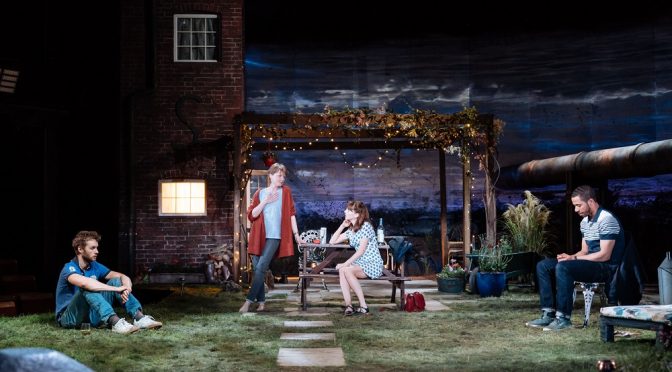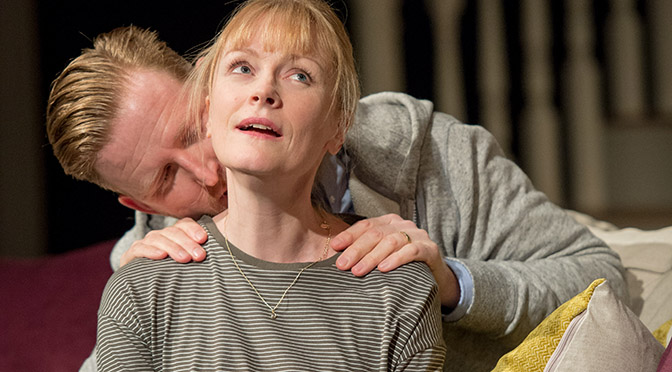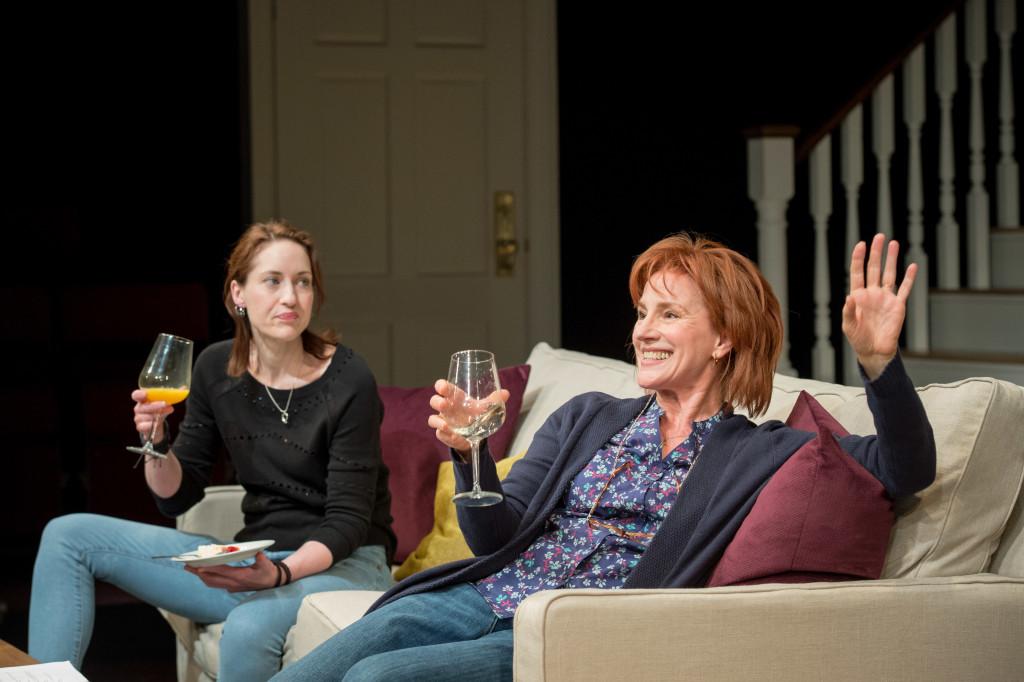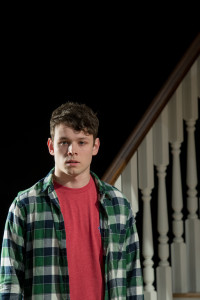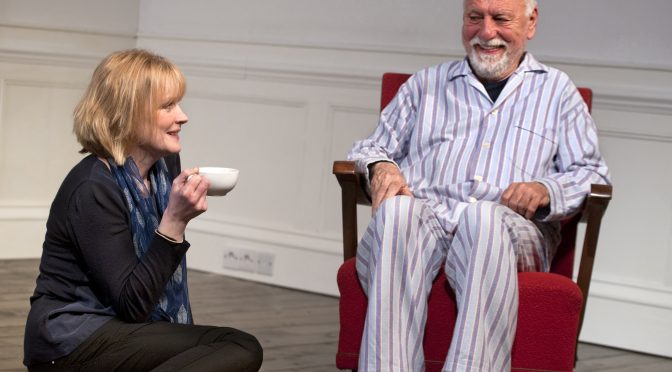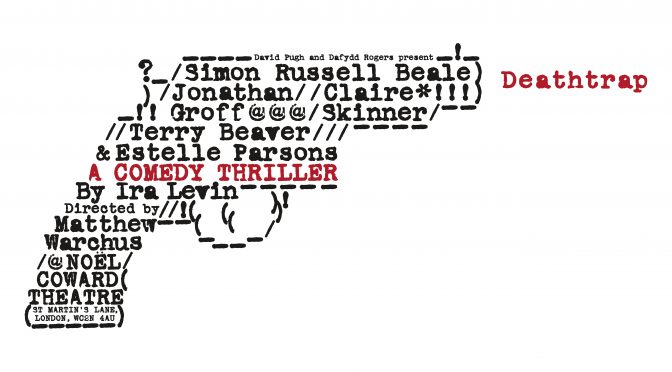This is only the third show at the South Bank’s newest venue and the stage itself continues to impress. Transformed again – thrusting out into the audience and with glorious backdrops courtesy of Rae Smith – it’s a clever design for Barney Norris’ intimate new play. But, despite the addition of strong work from director Laurie Sansom, there’s a suspicion that this intergenerational family drama would benefit from a smaller home. And while Nightfallis well-crafted and well-performed it is also, unfortunately, a little bit dull.
Norris is a young writer of exciting promise. Credit to the venue for giving him such a break. As a mother and her adult children struggle as farmers, and fight to shape new lives after a bereavement, there is a lot of potential for emotion. There are secrets and lies aplenty and strong dialogue, although both are a touch predictable. The play’s quality feel makes criticism sound harsh, but this is very much a talking heads affair that combines a streak of sentimentality with a studiousness that is uninspired.
A look at rural life makes a welcome change in a London theatre. So it is frustrating that the setting gets lost, with surprisingly little sense of what a working farm is like and what living on one might entail. Brother and sister, Ryan and Lou, along with their best friend and her fiancé Pete, are well-rounded character studies and Ophelia Lovibond, Sion Daniel Young and Ukweli Roach all acquit themselves well. But there seems too little to distinguish them from their urban contemporaries. The play’s focus is really the theme of grief, which Norris tackles movingly. This is where the real meat lies, with Claire Skinner as the matriarch Jenny putting in a fine performance – although, for my money, Lovibond steals the show. And yet, while the characters are developed they aren’t fascinating. And the plot is involving, but too slim. As the stakes are raised to compensate we arrive at a drama of over-powering mother love too quickly, leaving Skinner lost and the play unconvincing.
Until 26 May 2018
Photo by Manuel Harlan

